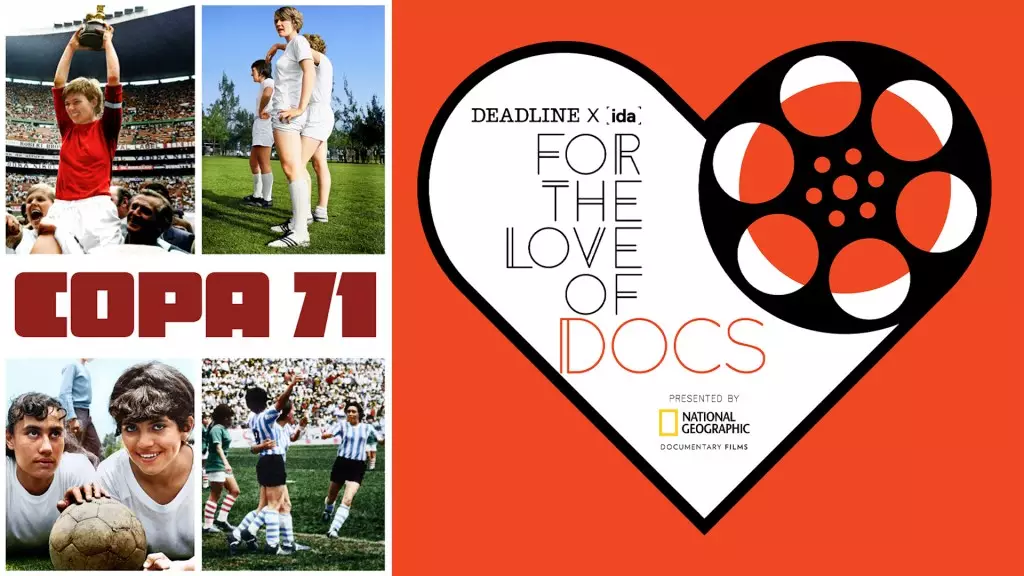In 1971, history was made at the Azteca Stadium in Mexico City, where an extraordinary event unfolded: the unofficial Women’s World Cup soccer tournament. Drawing an unprecedented crowd of over 110,000 fans, it became a landmark moment, not just for women’s sports, but for sports as a whole. This monumental gathering remains the largest known attendance for a women’s sporting event, though it has largely faded from the annals of history. The documentary “Copa 71” serves to resurrect this essential chapter of sports history, focusing on the athletes, the excitement, and the overarching societal issues that accompanied this historic tournament.
“Copa 71” is a labor of love crafted by writer-directors Rachel Ramsay and James Erskine, along with writer-producer Victoria Gregory. Their efforts began when Gregory’s husband stumbled upon a radio broadcast discussing one of the English team members. Recognizing the potential of this under-told story, they set out on a quest—first to locate archival footage of the tournament, which featured teams from Mexico, England, Argentina, France, Italy, and Denmark, and then to connect with the surviving players who had participated in the historic event.
Building trust with these former players was paramount. Many were initially hesitant to share their stories, often due to a lack of understanding about their athletic history even within their families. Gregory recounted the challenges of reassuring the players that their experiences would be respected and accurately portrayed: “Many of them hadn’t told their children either about competing in the tournament… This was about earning their trust and commitment.”
As the documentary unfolds, it becomes clear why these athletes were initially reluctant to engage in the project. The tournament provided a rare opportunity and was undoubtedly a peak experience in their lives; however, the prevailing media narrative at the time cast a shadow over their achievements. The players faced severe objectification and a gross underestimation of their soccer skills. Furthermore, the soccer establishment, driven by a patriarchal agenda, viewed their participation as a threat. FIFA did not establish an official Women’s World Cup until two decades later, highlighting the systemic challenges faced by women in sports.
The film’s exploration of such themes brings an unsettling awareness to modern fans of female athletics as they consider the current state of women’s sports, especially in light of a recent incident involving Luis Rubiales, the then-president of the Royal Spanish Football Federation. His inappropriate behavior during a medal ceremony has sparked discussions about ongoing sexism and the broader dynamics of power, control, and exploitation in sports.
Despite the considerable successes of the Mexico 1971 tournament, including attracting media attention and fanfare, the players were not compensated adequately for their efforts. Ramsay highlighted the contrast between the profits generated by media outlets through the event and the financial reward—or lack thereof—that players received. The Mexican team even staged a temporary strike demanding better compensation, showcasing the underlying gender inequities that persisted even in moments of apparent triumph.
James Erskine echoed these sentiments, emphasizing that the issues transcend monetary considerations. “It’s not just about money,” he said. “It’s about control and dictating narrative. What happened to the players is a larger commentary on women’s autonomy and agency in a male-dominated environment.”
The rich tapestry of themes woven throughout “Copa 71″—power dynamics, media treatment, financial disparities, and the right to self-expression—resonates deeply in contemporary discussions about women in sports. As Ramsay suggests, the dialogues surrounding financial independence and sexual autonomy have not fundamentally changed, revealing a somber continuity across fifty years.
The documentary invites viewers to reflect on how far we have come but also how much work remains to be done. By illuminating the sacrifices and resilience of these trailblazing women, “Copa 71” not only presents a forgotten chapter of history but also serves as a rallying cry for ongoing progress in women’s sports, emphasizing the critical need for recognition and respect for female athletes on all levels.
In sum, “Copa 71” is more than a retrospective; it is an inspirational call to acknowledge the past while galvanizing the movement toward a more equitable sports world for future generations. The film transcends its historical roots, providing a lens through which we can understand the ongoing struggles and triumphs in the landscape of women’s sports today.

